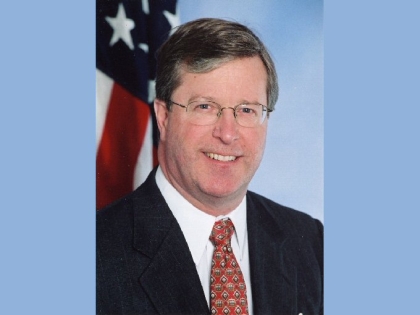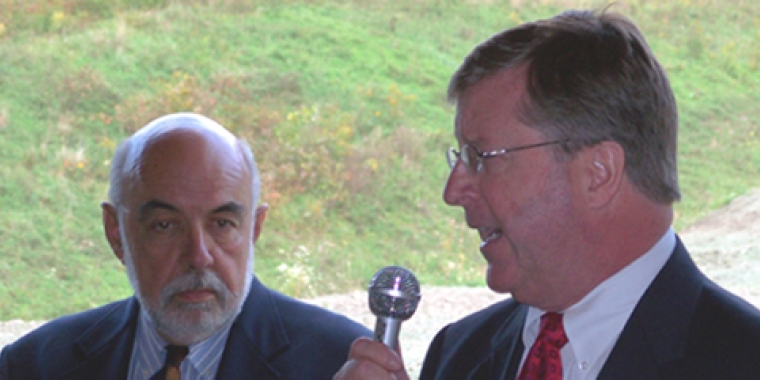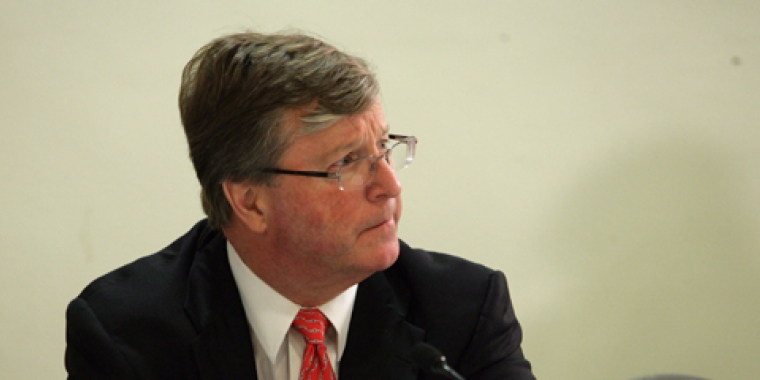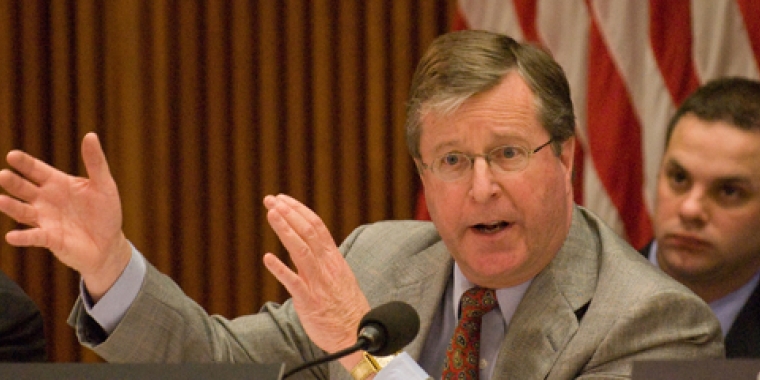
Winner Makes Pitch To Assembly Committees For Rural Empire Zone Reform

Albany, N.Y.-- In public testimonyyesterday at an Assembly public hearing on reforming New York’s Empire Zone program, State Senator George H. Winner, Jr. (R-C, Elmira), chairman of the joint, bipartisan Legislative Commission on Rural Resources (LCRR), urged Assembly leaders to support legislation he sponsors to make the program work more effectively in rural, upstate regions.
"We’re ignoring real opportunities in rural, upstate regions to use the Empire Zone program to build a solid, sustainable foundation of small businesses and job opportunities," Winner said in his testimony this morning before the Assembly committees on Economic Development Job Creation, Commerce and Industry; Codes; and Ways and Means. The Assembly is conducting hearings to examine the effectiveness of the Empire Zone program, which has come under fire by critics, especially Assemblyman Richard Brodsky (D-Westchester), who claim that the program has been abused.
"I have long been both a critic and proponent of the Empire Zone program," Winner testified. "I submit that the people of this state would be better served if policy makers and interested parties focused on the present and ways we can work together to enhance this economic development tool rather than rehash past abuses... Our rural Empire Zones are not abusing Empire Zone benefits. They are using it as intended after the 2005 changes and should not be lumped with others who have misused the program in the past."
Winner noted that he has already introduced legislation (S.5250) he believes can make the program work better for many upstate communities, stressing that the program remains largely urban-oriented and shortchanges job growth in rural regions. The Empire Zone program was established in 1986. Originally called "economic development zones," they were intended to bolster areas with pockets of poverty, high unemployment, dilapidated industrial and commercial facilities and shrinking tax bases. Businesses located within the zones receive significant tax reductions through a range of credits on items including wages, capital investment and real property taxes.
Winner’s Empire Zone reform legislation was developed based upon an LCRR survey last year of Empire Zone officials in 35 rural counties. Most of the officials responded with suggestions to improve the usefulness of the Empire Zone program for their communities. A December 2006 report from the LCRR, "Actions to Revitalize Rural New York through an Enhanced Empire Zone Program," summarizes the survey’s findings, highlights the recommendations offered by local zone officials, and provides a map of both rural and urban zones statewide.
Winner told Assembly leaders that his proposed legislation will promote flexibility and streamlining in the current Empire Zone program so that it’s more useful to rural areas and small business development.
"A cluster of small businesses is like a pot of gold and the lifeblood of a rural community," Winner said. "Many of the most economically challenged communities in this state are rural and upstate, which I am pleased that Governor Spitzer and his economic development team recognize as well. It’s common sense that our number one economic development tool should be able to work effectively in depressed rural communities, where pockets of poverty, high unemployment, shrinking tax bases, dilapidated industrial, commercial facilities and infrastructure are found everywhere."
The LCRR report notes that the last major overhaul of the Empire Zone program came in the 2005-06 state budget, when the Legislature and Governor George Pataki agreed to extend the program until 2011, implement new safeguards against abuses, authorize new zones and bring the program more in tune with its original purpose of addressing poverty and unemployment in the economically hard-pressed areas of New York. While several of the changes made in 2005 have been extremely beneficial to rural economic development, primarily by giving local zone administrators greater flexibility, the survey also revealed several widely held recommendations to make the program even more useful in rural areas. Some of the recommendations incorporated into Winner’s legislation (S.5250) will:
> streamline the process of calculating Empire Zone tax credits to foster a speedier return on investment in rural communities;
> abandon the program’s "one-size-fits-all" approach and incorporate greater flexibility so that the program can be better customized to accommodate rural needs and place a greater emphasis on assisting small businesses and agribusinesses;
> reduce the complexity of the application process for small businesses;
> reduce the costs associated with mapping, public notices and hearings in the designation and approval of regionally significant projects; and
> no longer restrict rural empire zone projects to sites served by existing public water and sewer infrastructure, as long as suitable alternative water and sewer systems are available.



